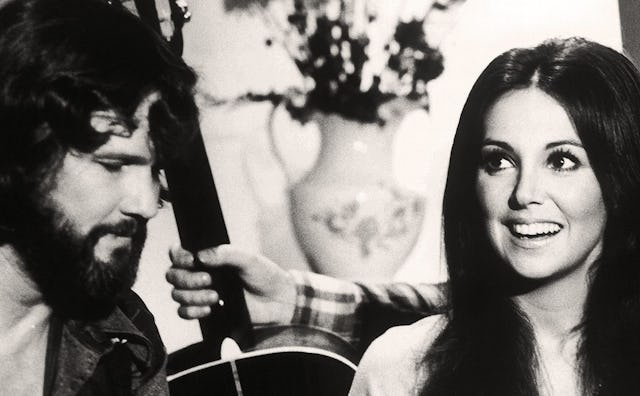Teaching My Daughter Boundaries, With Help From 'Free to Be You and Me'

My 3-and-a-half-year-old stands next to me in our tiny kitchen while my husband sautés mushrooms. Her tiny fists are clenched, her face a study in Holly Hunter-in-Broadcast-News intensity. I’m telling her father about something that made me frustrated, something that made me really angry. Someone didn’t get a point, some fine point that I was desperate to make in an email or an essay or maybe it was just in line at the grocery store.
“Mommy! Mommy! If you don’t talk to me I, I, I…” Her brown eyes grow wide and wild as she struggles to come up with a consequence commensurate with her desperation.
“If you don’t talk to me, I won’t be alive anymore,” she finishes.
I look down at my passionate, pig-tailed child in her “I Love New York” t-shirt and corduroys. Oh boy, does she have to make this point right now. For the life of me, I can’t distinguish between the two of us. Except that one of us is nearly four and one of us is nearly 40.
I’m in my nightgown at 5 p.m. I reek of sweat and exhaustion. I need just five minutes to finish my argument. And then maybe ten more to have a hot bath—boy am I charley-horsed from yesterday’s once-a-month ballet class. And then maybe just like 15 more minutes to write something down. Oh, and then like an hour to watch Wolf Hall.
I pick up my pig-tailed tot.
“Did you know,” I begin, “That parents are people?”
She gazes into my eyes. This, this is what she wants. I have her full attention because she has mine.
Talk directly to me, Mommy. Or I won’t be alive anymore.
“Mommies are people. People with children.”
I grope for the lyrics to “Parents Are People,” from that staple of 1970s and ’80s childhoods, Free to Be You and Me.
When Mommies were little
They used to be girls.
Like some of you
But then they grew.
I crawl into the time travel tunnel and find the way to my childhood bedroom. There I am, sitting on the orange shag carpet that glows in the filtered light of Southern California. I sit amidst piles of leotards and legwarmers and stinky toe shoes. I inhale the pulpy fragrance of textbooks wrapped in grocery store brown paper. I hear the strains of all those albums. What the hell did I listen to in the 1980s?
A Chorus Line. (Oh, the bell-bottomed glory!)
Stacey Q. (Did I really just admit that?)
Billy Vera and the Beaters. (Remember the song that was playing when Alex and Ellen accidentally fell in love on Family Ties?)
The Princess Bride soundtrack. (Of course.)
Free to Be You and Me.
I pull up the album for my kid—sadly, on iTunes. Note to self: Join the hipsters and buy a goddamned record player, it does sound better.
And we dance. My daughter is about half my length now but somehow she fits in my arms. Draped over my neck, she snuggles into me as we sway to “Parents Are People.”
Mommies are women.
Women with children,
Busy with children
And things that they do.
There are a lot of things
A lot of mommies can do.
Some mommies are ranchers
Or poetry makers
Or doctors or teachers
Or cleaners or bakers
Some mommies drive taxis
Or sing on TV
Yes, mommies can be
Almost anything they want to be.
Dusk falls and lights blink on in the windows across the way on our narrow New York City block.
We stand by the window, singing and swaying. Outside, people scurry home from work, dogs race down townhouse steps to pee, teenagers strut down the sidewalk in high heels, laughing and smoking.
We dance and sway.
My husband turns off the stove. Dinner can wait.
Remember this one?
Well, I don’t care if I’m pretty at all
And I don’t care if you never get tall.
I like what I look like and you’re nice small
We don’t have to change at all.
My daughter used to ask me why I was crying when I listened to certain songs. She doesn’t ask me anymore. She must have figured it out. She knows there is a mystical world that parents travel to in their minds—a place where they are completely by themselves and entirely with their children at the same time.
It’s that moment when you bask in nostalgia, then transmit the passion to your child, and then—parent and child commune.
I’m almost 40, little one, and I’m here to tell you:
We don’t have to change at all.
This article was originally published on